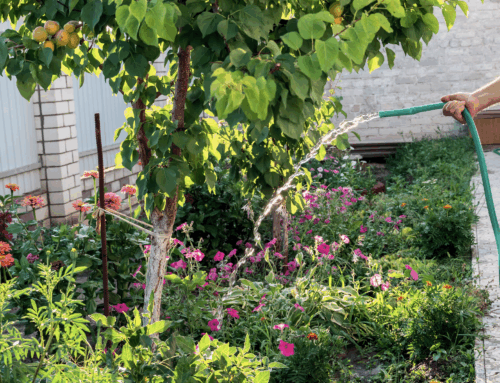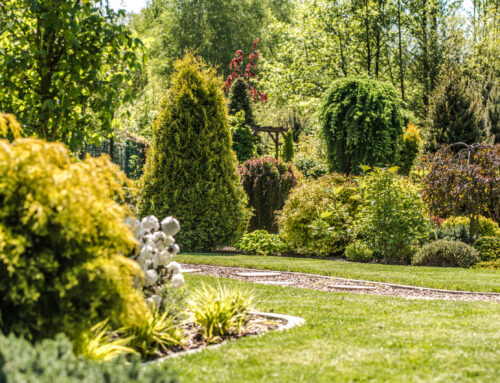At this time of year, we can often experience very cold temperatures.
If some of your plants look like they are suffering, it doesn’t mean they won’t necessarily survive.
Many hardy evergreen perennials will perk up again as soon as the temperature warms up. They look like they haven’t been watered and to a degree this is true – the frozen soil has inhibited their ability to drink. As the soil thaws, the plants should pick up again as they start to drink again.
Some shrubs may show signs of frost damage. This can sometimes take a few days to show and is usually with the soft top-growth softening and turning dark brown to black. It can be easy to get tempted to clip this shrivelled growth back but it does act as a barrier to further cold weather so it’s well worth waiting until the frosts have finished. If we get some milder weather, this will encourage new growth but we could also get another frost that will damage the new growth again. If you have already clipped back, cover with horticultural fleece at the first sign of another frost.
Horticultural fleece offers a protective layer against frost whilst still allowing light through with good airflow. A relatively inexpensive gardening ‘must-have’ for this time of year.
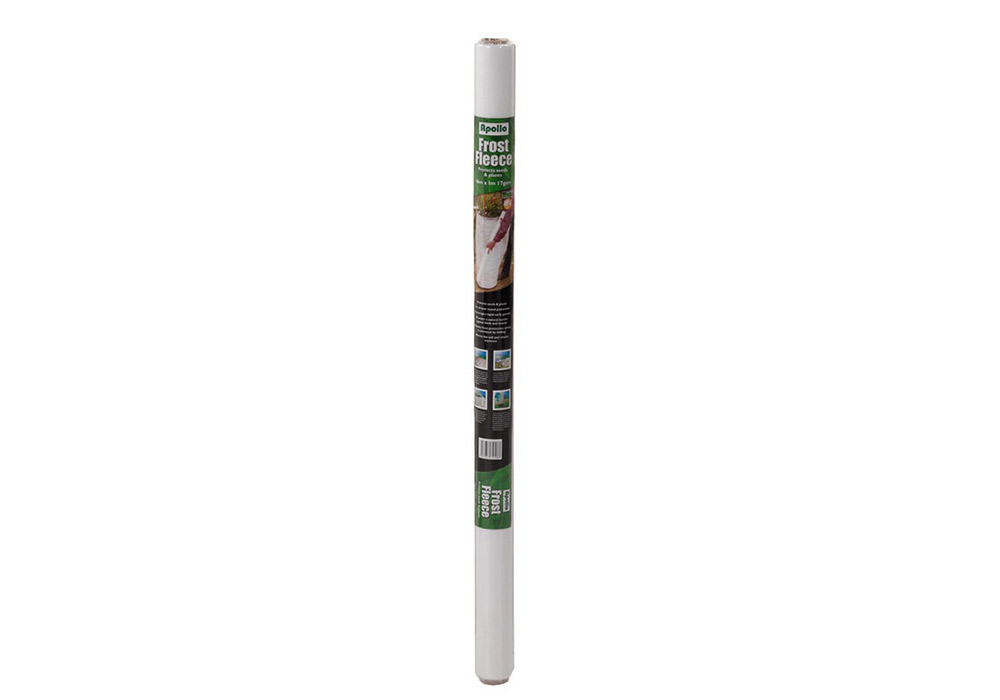
Fleece rolls: £6.99 for 16 x 1 metres
Flower beds
Start to deadhead your daffodils as the flowers finish but do let the foliage die naturally as the nutrients go back into the bulbs for next year’s growth.
Put your plant supports in place. It’s far easier for perennial plants to grow through these than it is to add the support when the plant has substantial growth – it can be tricky and may end up looking unattractive.
As the weather warms up, the slugs will start to show so look out for these on new growth. You can use nematodes as an effective, organic way to control slugs. Nematodes can be used from March through to October.
Now is the time to deadhead your hydrangeas and cut back your fuschias – cut back to around one third of last year’s growth.
Feed your roses with a slow release fertiliser as they come into growth.
Vegetable garden
Get your vegetable beds ready for planting, remove any weeds and dig over. You can also cover the beds with weed suppressant fabric to prevent further weed growth and to warm the ground for when you are ready to plant in late March.
Plant your onions sets, shallots and asparagus crowns and these will be ready to harvest in late August/September. Plant red onion sets in April as they can be prone to bolting – planting them a bit later may help to avoid this. Garlic can be planted in early spring and harvested in August/September.
The end of March is the time to start planting your chitted potatoes, depending on the variety:
First early potatoes should be ready to lift in June and July, second earlies in July and August, maincrops from late August through to October.
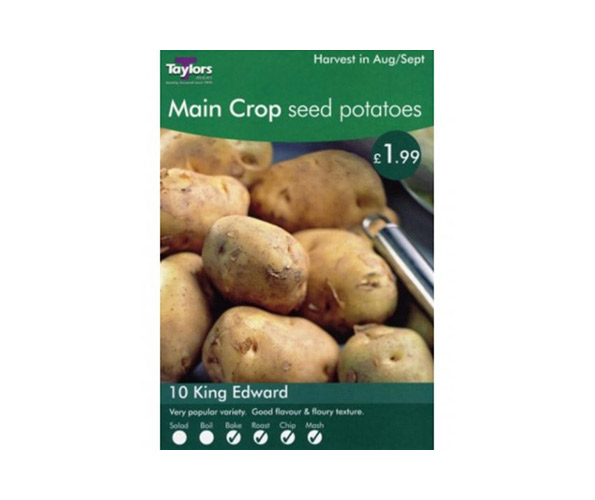
Seed potatoes from: £1.99
Getting your lawn ready
Re-cut and shape your lawn edges to maintain the sharp edge definition between lawn and flower bed. Use a lawn edging blade to give the best results. You could also think about putting in lawn edging to make future maintenance easier.
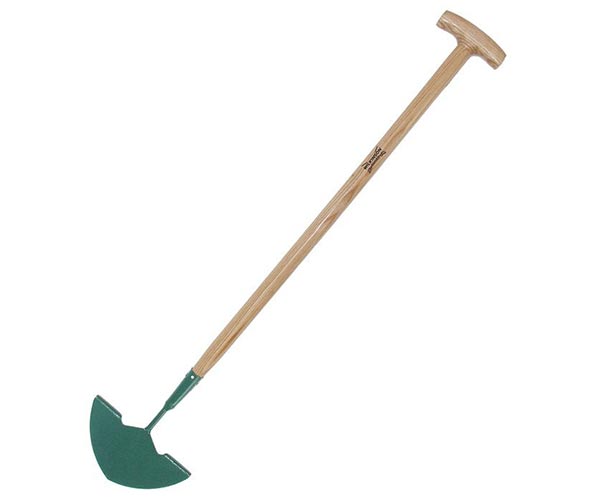
Wilkinson Sword Lawn Edging Blade, from: £17.99
On a dry day, mow your lawn if it needs it – just make sure that you set the blades to a higher setting than normal.
As long as the ground isn’t frozen, March is the perfect time to lay new turf – the timing allows for the turf to settle in before the summer months. We are expecting our first delivery of turf on the first weekend in March
If you are looking to re-seed areas of your lawn, prepare the soil ready for sowing the seed in April. When the grass seed is sown, it must always be kept moist.
General jobs
Weed and top up your raised beds with compost and topsoil, ready for planting your seeds and seedlings.
Top dress containers – remove all weeds and the top level of soil and replace with fresh compost – don’t forget to use the correct compost for the type of plant. Camelias and Azaleas will need ericaceous whilst Fuchsias and Cistus will need a multi-purpose compost.
If you haven’t already, install a water butt so that you have a ready supply of free rainwater. Rainwater is far better for your garden plants as it is delivered to your plants at an ambient temperature rather than the cold water from your tap.
If you’re not sure of the best types of plants to grow, you can invest in a soil testing kit. You will know the type of soil you have and therefore, be able to choose the right plants for your garden.
If you’re looking to grow azaleas, camelias or magnolias, you will need acidic soil or ericaceous compost.
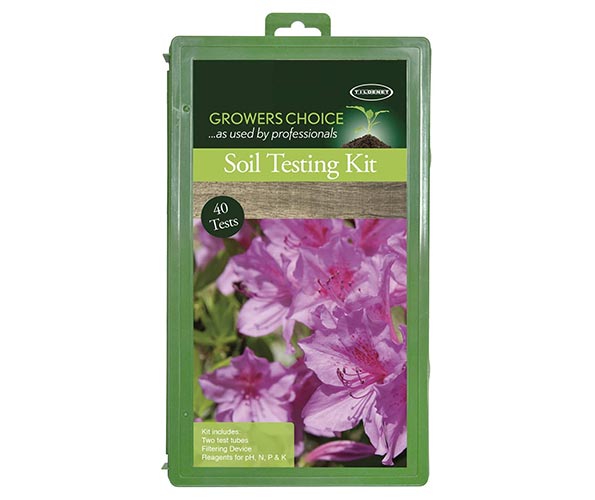
Soil Testing Kit: £12.99
Give your patio a spring clean, sweep up all the debris and then either scrub with a broom and a specialist cleaner or give it a good blast with a pressure washer. Either way, you’ll be amazed at the results!
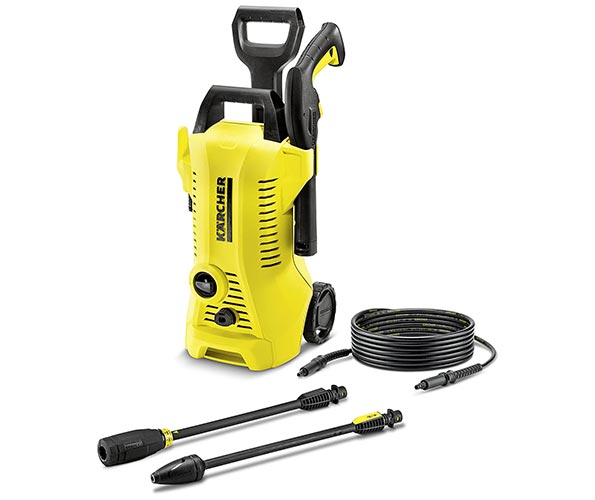
Karcher Pressure Washers: Check in store for prices
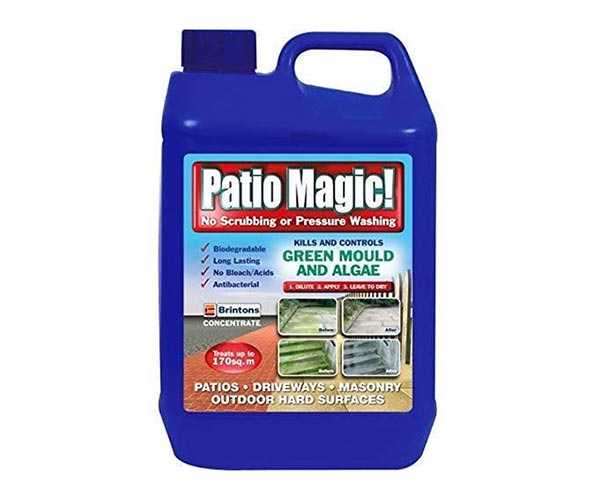
Patio Magic: £11.99



